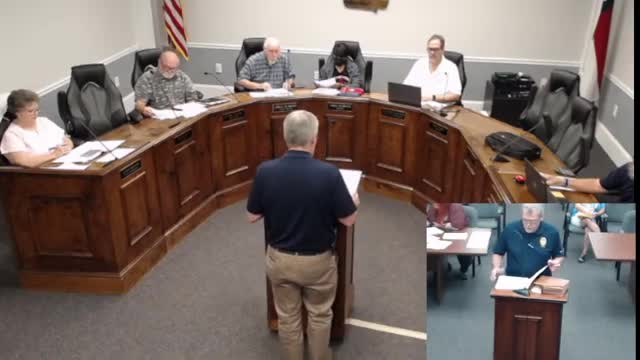Taxpayer Challenges Dramatic Property Valuation Injustice
August 20, 2024 | Jones County, Georgia
This article was created by AI summarizing key points discussed. AI makes mistakes, so for full details and context, please refer to the video of the full meeting. Please report any errors so we can fix them. Report an error »

During a recent government meeting, a local landowner voiced significant concerns regarding the valuation of his properties, highlighting perceived inequities in the assessment process. The landowner, who has been a resident since 1990, presented a detailed challenge to the valuation of his primary residence and an adjacent tract of land, arguing that recent increases in property values were unjustified and inconsistent with neighboring properties.
The landowner noted that his home, built in 2020, has seen a valuation increase of over 22% in just two years, despite no improvements or changes to the property. He expressed frustration over a 15% increase in improvement value for the current year, which he argued was disproportionate compared to the static accessory value of his property. He questioned the rationale behind these increases, suggesting that if inflation and rising housing costs were the causes, they should uniformly affect all properties in Jones County.
To illustrate his point, the landowner presented several exhibits comparing his property valuations with those of neighbors, including a tax assessor's office employee and the county tax commissioner, whose properties had not experienced similar increases. He argued that this discrepancy indicated a lack of fairness and transparency in the assessment process.
In response, Kim Adams from the tax assessor's office explained that property values are influenced by various factors, including soil types and market trends. She noted that the office had implemented an 8% increase in land values to align with rising market prices, emphasizing that larger tracts of land typically have lower per-acre values. Adams acknowledged the complexities involved in property assessments, particularly for conservation properties, which are evaluated based on specific criteria set by the state.
The meeting underscored ongoing tensions between property owners and local government officials regarding property tax assessments, with the landowner calling for greater accountability and equitable treatment in the valuation process. The board of equalization was urged to scrutinize the tax assessor's decisions and ensure that all citizens are treated fairly under the law.
The landowner noted that his home, built in 2020, has seen a valuation increase of over 22% in just two years, despite no improvements or changes to the property. He expressed frustration over a 15% increase in improvement value for the current year, which he argued was disproportionate compared to the static accessory value of his property. He questioned the rationale behind these increases, suggesting that if inflation and rising housing costs were the causes, they should uniformly affect all properties in Jones County.
To illustrate his point, the landowner presented several exhibits comparing his property valuations with those of neighbors, including a tax assessor's office employee and the county tax commissioner, whose properties had not experienced similar increases. He argued that this discrepancy indicated a lack of fairness and transparency in the assessment process.
In response, Kim Adams from the tax assessor's office explained that property values are influenced by various factors, including soil types and market trends. She noted that the office had implemented an 8% increase in land values to align with rising market prices, emphasizing that larger tracts of land typically have lower per-acre values. Adams acknowledged the complexities involved in property assessments, particularly for conservation properties, which are evaluated based on specific criteria set by the state.
The meeting underscored ongoing tensions between property owners and local government officials regarding property tax assessments, with the landowner calling for greater accountability and equitable treatment in the valuation process. The board of equalization was urged to scrutinize the tax assessor's decisions and ensure that all citizens are treated fairly under the law.
Don't Miss a Word: See the Full Meeting!
Go beyond summaries. Unlock every video, transcript, and key insight with a Founder Membership.
✓
Get instant access to full meeting videos
✓
Search and clip any phrase from complete transcripts
✓
Receive AI-powered summaries & custom alerts
✓
Enjoy lifetime, unrestricted access to government data
30-day money-back guarantee

